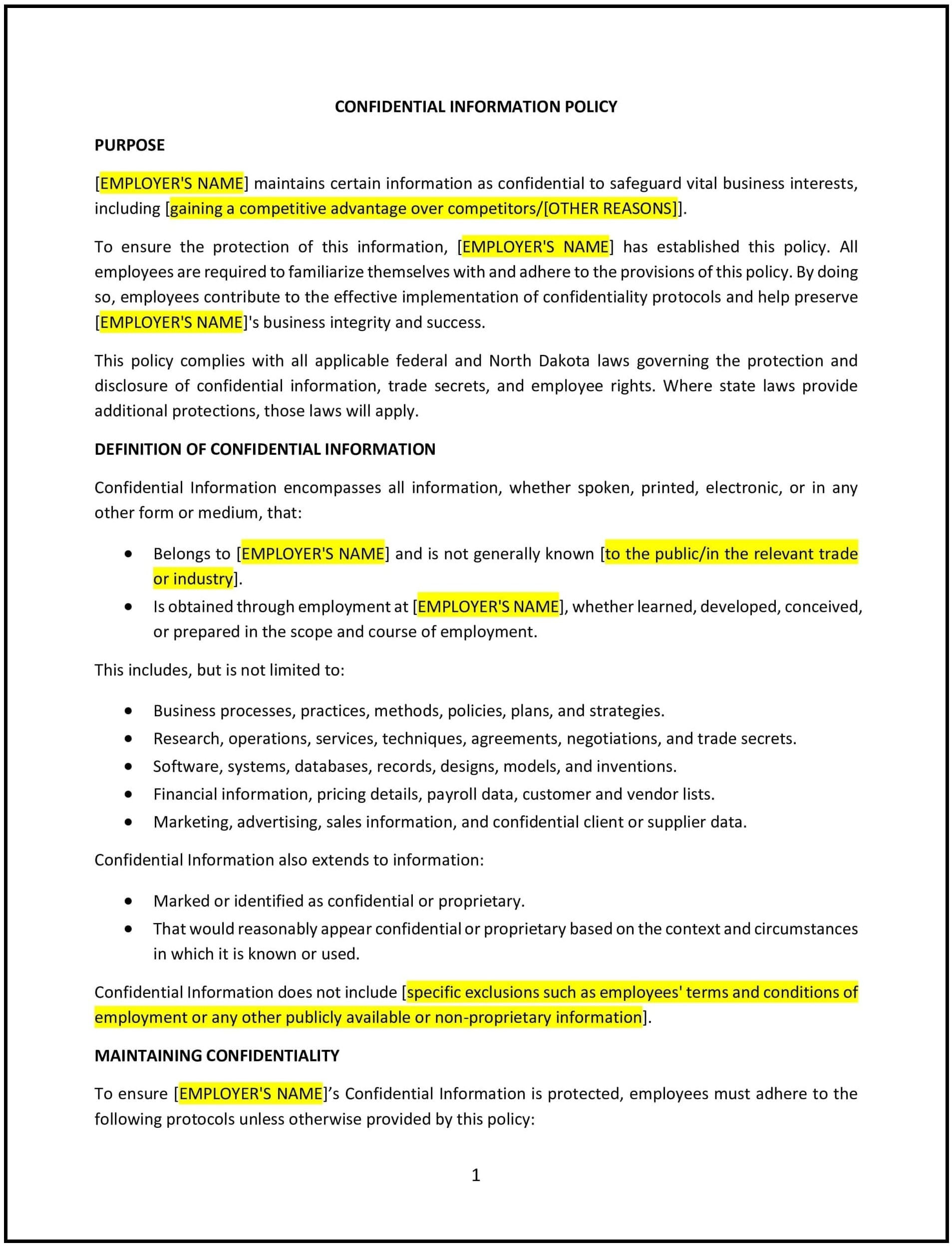Confidential information policy (North Dakota): Free template
Got contracts to review? While you're here for policies, let Cobrief make contract review effortless—start your free review now.

Customize this template for free
Confidential information policy (North Dakota)
This confidential information policy is designed to help North Dakota businesses establish guidelines for protecting sensitive company data, employee records, and client information. The policy outlines confidentiality expectations, access restrictions, and security measures to prevent unauthorized disclosure.
By implementing this policy, businesses can safeguard intellectual property, maintain data integrity, and reduce the risk of information leaks.
How to use this confidential information policy (North Dakota)
- Define confidential information: Specify what constitutes confidential data, including business plans, financial records, employee data, and trade secrets.
- Establish access controls: Restrict confidential data access to authorized employees only.
- Outline data protection measures: Require encryption, password protection, and secure storage of sensitive information.
- Set disclosure restrictions: Prohibit employees from sharing confidential information without authorization.
- Address third-party confidentiality: Require vendors, contractors, and partners to sign confidentiality agreements.
- Clarify enforcement actions: Define disciplinary measures for policy violations, including termination or legal action.
- Review regularly: Update the policy based on legal and industry-specific confidentiality requirements.
Benefits of using this confidential information policy (North Dakota)
Implementing this policy provides several advantages for North Dakota businesses:
- Protects business assets: Reduces risks of data breaches and intellectual property theft.
- Enhances legal compliance: Helps businesses align with data protection regulations.
- Strengthens customer and employee trust: Demonstrates a commitment to safeguarding sensitive information.
- Establishes accountability: Ensures employees understand their responsibility in handling confidential data.
- Reflects North Dakota-specific considerations: Aligns with local data security best practices and industry standards.
Tips for using this confidential information policy (North Dakota)
- Require confidentiality agreements: Ensure employees and third parties sign NDAs as needed.
- Train employees on data security: Educate staff on proper handling and storage of confidential data.
- Enforce strict access controls: Implement user permissions and limit access to sensitive files.
- Monitor and audit data access: Regularly review security logs to detect unauthorized access.
- Adjust as needed: Update policies based on new threats and regulatory changes.